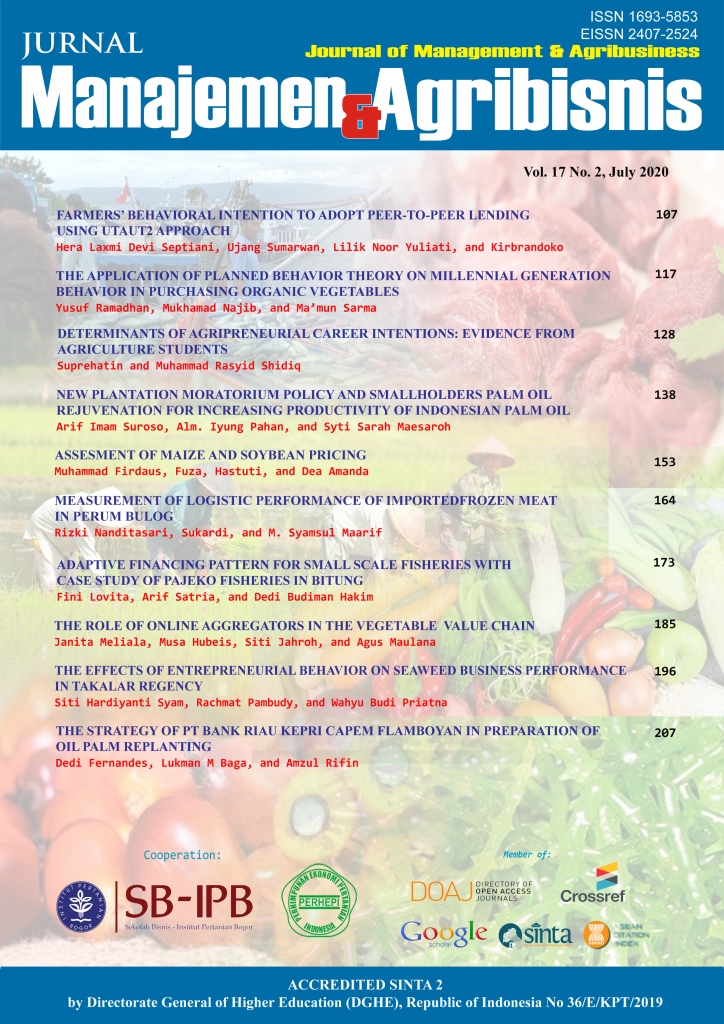New Plantation Moratorium Policy and Smallholders Palm Oil Rejuvenation for Increasing Productivity of Indonesian Palm Oil
Abstract
Palm oil is one of the plantation sub-sectors that plays an important role in the Indonesian economy. Smallholder plantation with an area of more than 40% has a significant role in the development of this industry. Low productivity becomes the main problem on -in smallholder plantation. Low productivity of smallholder plantation is mainly due to the inappropriate of plant genetic material. Genetic improvement for increased productivity can be done either through new planting (extensification) and rejuvenation (intensification). Extensification constrained Presidential Instruction 10/2011 while the intensification constrained by funding issues of rejuvenation. This research conducts a literature review, in-depth interview and questionnaire method to collect opinions from the experts and practitioners. Analytical Network Process (ANP) is used to analyze the data. The results showed that the factors which influenced in this study were policy environment (41.29%), policy stakeholder (35.72%), and public policy (23.00%). The moratorium policy has not been able to improve Indonesia's forest governance. This policy precludes opportunities for economic growth for the palm oil industry. The rejuvenation of the smallholder is constrained by funding problems. Access to credit- constrained aspects of land legality. Extensification barriers and intensification of smallholders threaten the sustainability of national palm oil production. Plant genetic improvements, improved legality, and law enforcement of moratorium policies are required to increase the productivity of smallholder plantations.
Keywords: moratorium, productivity, public policy, palm oil, smallholders
Authors
Authors who publish with this journal agree to the following terms:
- Authors retain copyright and grant the journal right of first publication with the work simultaneously licensed under a Creative Commons Attribution License that allows others to share the work with an acknowledgement of the work's authorship and initial publication in this journal.
- Authors are able to enter into separate, additional contractual arrangements for the non-exclusive distribution of the journal's published version of the work (e.g., post it to an institutional repository or publish it in a book), with an acknowledgement of its initial publication in this journal.
- Authors are permitted and encouraged to post their work online (e.g., in institutional repositories or on their website) prior to and during the submission process, as it can lead to productive exchanges, as well as earlier and greater citation of published work (See The Effect of Open Access).

